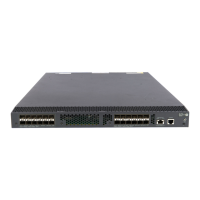For an IKE profile, you can configure multiple peer IDs. A peer ID configured earlier has a higher priority.
Examples
# Create IKE profile prof1.
<Sysname> system-view
[Sysname] ike profile prof1
# Configure a peer ID with the identity type of FQDN and the value of www.test.com.
[Sysname-ike-profile-prof1] match remote identity fqdn www.test.com
# Configure a peer ID with the identity type of IP address and the value of 1 0 .1.1.1 .
[Sysname-ike-profile-prof1] match remote identity address 10.1.1.1
Related commands
local-identity
pre-shared-key
Use pre-shared-key to configure a pre-shared key.
Use undo pre-shared-key to remove a pre-shared key.
Syntax
pre-shared-key { address { ipv4-address [ mask | mask-length ] | ipv6 ipv6-address [ prefix-length ] } |
hostname host-name } key { cipher cipher-key | simple simple-key }
undo pre-shared-key { address { ipv4-address [ mask | mask-length ] | ipv6 ipv6-address
[ prefix-length ] } | hostname host-name }
Default
No pre-shared key is configured.
Views
IKE keychain view
Predefined user roles
network-admin
Parameters
address: Specifies a peer by its address.
ipv4-address: Specifies the IPv4 address of the peer.
mask: Specifies the mask in dotted decimal notation. The default mask is 255.255.255.255.
mask-length: Specifies the mask length, in the range of 0 to 32. The default mask length is 32.
ipv6: Specifies an IPv6 peer.
ipv6-address: Specifies the IPv6 address of the peer.
prefix-length: Specifies the prefix length, in the range of 0 to 128. The default prefix length is 128.
hostname host-name: Specifies a peer by its hostname, a case-sensitive string of 1 to 255 characters.
393

